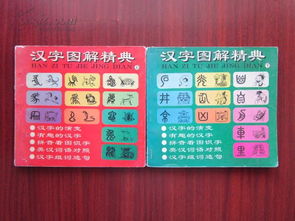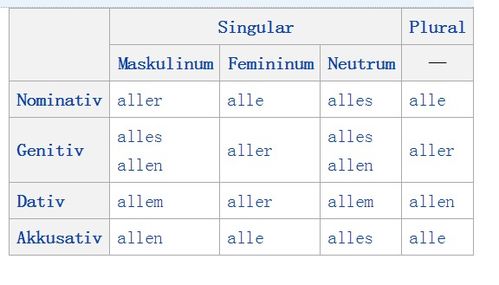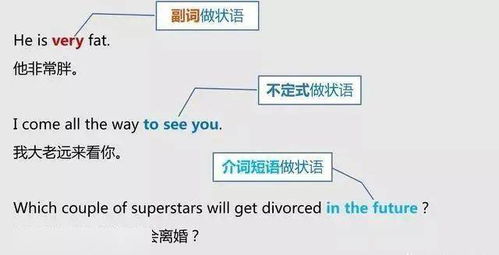初二英語語法歸納:1、賓語從句:主語+謂語動詞+賓語從句。2、量詞的用法:不可數名詞常用“數字+量詞+不可數名詞”來表示。3、感嘆句:How+adj+主語+系動詞;How+adv+主語+實義動詞;What+a∕an+adj+可數名詞單數。4、條件狀語從句:主將從現,用一般現在時表示將來。5、There be結構:There be+某物/某人+某地/某時。
初二英語語法重點總結歸納
重點語法:賓語從句
結構:主語 + 謂語動詞 + 賓語從句(主語 + 謂語動詞 + 賓語/表語)
例句:----Im good at English. He says. (改為加賓語從句的復合句)
----He says Im good at English.
注意:①主句是一般現在時態,賓語從句的時態不受其影響。
例句:He says Im good at English now.
He says I was good at mathematics when I was young.
②主句是過去時態,賓語從句也要用過去時態。
例句:He said I was good at mathematics when I was young yesterday.
He said I was good at English now yesterday.
③賓語從句是客觀真理時永遠用一般現在時態。
例句:Our teacher says 24 hours make a day.
Our teacher said the sun gives us so many energy yesterday.
④動詞原形不能作主語,必須用其 -ing 形式。
例句:She said helping others changed her life.
重點短語:direct speech 直接引語
reported speech = indirect speech 間接引語
first of all = at first 首先
pass on 傳遞
be supposed to do sth. 應該做某事
be good at = do well in 在某方面做得好
in good health 身體健康
get over 克服
open up 打開
care for = take care of = look after 照料;照顧
not any more = not any longer = no longer 不再
have a cold 感冒
end-of-year exam 年終考試
get nervous 變得緊張
forget to do sth. 忘記做某事(該事未做)
forget doing sth. 忘記做某事(該事已做)
its + adj. + [for sb.] + to do sth. 做某事[對某人來說](加形容詞)
context 上下文
Reading Strategy(閱讀方法)
First read for meaning, not for detail. (首先理解文段的大致意思,不在于文段的細節部分。)
You can understand the meaning of a word you dont know from the context. (至于不懂的單詞,你可以通過上下文來尋找它的正確釋義。)
If you go to the party,youll have a great time!
八年級英語語法知識點歸納總結二
Unit 1 Where did you go on vacation?
本單元的話題:談論假期活動內容,復習一般過去時。
本單元的語法:1.復習一般過去時;2.學習不定代詞和不定副詞的用法。
2.不定代詞和不定副詞的用法:
(1)左邊的some、any、every、no與右邊的body、one、thing構成不定代詞,some、any、every、no與右邊的疑問副詞where構成不定副詞;
(2)一般情況下以some開頭的不定代詞和不定副詞用于肯定句,以any開頭的不定代詞和不定副詞用于否定句、疑問句;以no開頭的不定代詞和不定副詞表示否定含義(no one為兩個單詞);
(3)不定代詞或不定副詞和形容詞連用時,形容詞放在后面。
He has something important to do.他有重要的事情要做。(肯定句用something,形容詞important放后)
Did you buy anything special? (一般疑問句用anything,形容詞special放后)
Did you go anywhere interesting last month?上個月你去令人感興趣的地方了嗎?
(一般疑問句用不定副詞anywhere,形容詞interesting放后)
(4)不定代詞和不定副詞做主語時,后面的動詞用單數形式。Everone is here today.今天每個人都在這里。
本單元的短語和知識點:
1. go on vacation去度假 go to the mountains 上山/進山
2.stay at home呆在家go to the beach去海灘 visit museums 參觀博物館 go to summer camp去參觀夏令營 3. study for tests為考試而學習\備考 go out出去
4. quite a few相當多,不少(后跟可數名詞復數)take photos照相 most of the time大部分時間 5.buy sth for sb = buy sb sth為某人買某物 6. taste good. 嘗起來很好
taste(嘗起來)、look(看起來)、sound(聽起來)為感官動詞,后跟形容詞
7.have a good\great\fun time過得高興,玩得愉快(=enjoy oneself) 8. go shopping去購物 9. nothing…but+動詞原形:除了……之外什么都沒有
He had nothing to do at home but read yesterday.昨天他在家除了讀書無事可做。
10. seem to do sth:好像… I seem to know him.我好像認識他。
seem+(to be)+形容詞:看起來…The work seems(to be)easy.這工作看起來很容易。
11.keep a diary記日記
12. in+大地方:達到某地 (get to +地方:達到某地)
arrive at+小地方:達到某地 (get的過去式為got)
若是arrive和get后跟home、there、here三個地點副詞,后面的介詞in\at\to必須去掉。
Tom got home yesterday evening=Tom arrived home yesterday evening.昨晚湯姆到家。
13.decide to do sth:決定做某事 14. try doing sth.嘗試做某事try to do sth.盡力去做某事
15. feel like給…的感覺;感受到 16. in the past 在過去 walk around四處走走
enjoy doing sth:喜歡做某事 difference(名詞,差異,差別)---- different(形容詞,不同的)
18.start doing sth:開始做某事 (= start to do sth)
19.19.over an hour一個多小時 (over超過,多余 = more than)
20. too many 太多,后接可數名詞復數。 too much 太多,后跟不可數名詞,修飾動詞作狀語。
much too 太,后跟形容詞或副詞 , 分辨三者的口訣: too much, much too, 用法區別看后頭:much 后接不可數,too 后修飾形或副。too many 要記住,后面名詞必復數。
21. because of 因為,后接名詞、代詞或動名詞(即動詞+ing),不能接句子。
because因為,后跟句子。
He was late for school because of getting up late.他因為起晚而上學遲到。(get為動詞)
= He was late for school because he got up late.
22. enough(足夠的)與名詞連用,一般放在名詞前He has enough money .
23. enough(足夠的)與形容詞或副詞連用,enough放在后面。He is old enough to go to school.
24. doing sth.忘記已經做過某事(已經做完)
Forget to do sth.忘記去做某事(還未做)(forget的過去式為forgot)
25. so+形容詞+that+句子:如此…以至于…
too+形容詞+to do sth:太…以至于不能…
形容詞+enough to do sth:足夠…能夠做某事(注意三個句型有時可以互換)
He is so young that he can′t go to school.= He is too young to go to school.
= He isn′t old enough to go to school.
Unit 2 How often do you exercise?
本單元的話題:談論生活習慣,復習一般現在時。
本單元的語法:1.復習一般現在時;2.學習表示頻率副詞的用法。
主要頻率副詞的等級排序:always(總是) > usually (通常) > often(經常) > sometimes(有時) > hardly ever(很少) > never(從不)
這些副詞在句子中的位置,一般放在助動詞、be動詞或情態動詞之后,行為動詞之前。即:“行”前“助(系)”后。 Peter is always late for school. Peter上學總是遲到。
I usually do my homework in the evening. 我通常在晚上做作業。
提問 always, sometimes, twice a day 等頻率副詞,用 How often
I watch TV every day.我每天都看電視→How often do you watch TV?(你多長時間看一次電視?)
本單元的短語和知識點:
1.on weekends在周末 go to the movies去看電影 help with housework幫助做家務 how often多久一次 hardly ever幾乎從不
2.once a week每周一次 twice a week每周兩次 every day每天 use the Internet用互聯網
be free有空 Are you free on weekends?你周末有空嗎?
4.stay up late熬夜at least至少go to bed early早點睡覺play sports進行體育活動
5.after school 放學后 6.want sth:需要某物 He wants a new pen.他想要一支新鋼筆。
want to do sth:想做某事 He wants to watch TV after school.放學后他想去看電視。
want sb to do sth:讓某人做某事 My mother wants me get up early.媽媽讓我早起。
7.be good for對……有好處 be bad for 對……有害處
8. play computer games打電子游戲 go camping去野營 9.ask sb about sth:問某人某事 My parents often ask me about my study.我的父母經常問我的學習情況。
10. in one’s spare time在某人業余時間He studies English in his spare time.11.(P13,2b)”數字+percent of+名詞”做主語時,后面的單詞取決于名詞的情況。若名詞為復數,后面的動詞用復數形式;若名詞為單數或不可數名詞,后面的動詞用單數形式。
In our class ,twenty of students are boys. Thirty of water is dirty.
12.not…at all:一點兒也不 (not構成否定句)I don’t like the movie at all.
13.go online上網=surf the Internet 14.the answer to+名詞:…的答案
16.the (best) way to do sth: 做某事的()方式
The best way to learn English is speaking English.學習英語的方法是說英語.
17.such as比如 (后跟名詞或名詞短語)for example 例如(后跟句子)
He likes fruits,such as apples,bananas and so on.他喜歡水果,例如蘋果、香蕉等。
He has some good ways to study English,for example ,he often listens to tapes.
19.more than (=over)超過,多余 go to the dentist去看牙醫
Unit 3 I'm more outgoing than my sister.
本單元的話題:談論事物對比,學習形容詞比較級。
本單元的語法:學習形容詞比較級。(語法:見課本第113頁至115頁)
本單元的短語和知識點:
1.play+the +樂器 play the drums打鼓 比較play +球類 play basketball打籃球
both…and…兩者都(后面的動詞用復數形式) Both Tom and Jim are students.
3.be good at+名詞\代詞\V ing:擅長,在某方面做得好
7.be like:像… The books are like friends.書像朋友。
8.make friends (with sb):(和某人)交朋友 enjoy doing sth:喜歡做某事
9.be different from與…不同 My brother is different from me.我弟弟與我不一樣。
10.help sb to (do) sth:幫助某人做某事
常與help sb with sth(在某方面幫助某人)互換 He often helps me (to) learn English.他經常幫助我學習英語。= He often helps me with my English.他經常在英語方面幫助我。
help (to) do sth:幫助做某事He often helps( to)cook at home.他經常在家幫助做飯。
13.be good with sb:與某人相處很好 14.information (n.消息,信息)不可數名詞
Unit 4 What's the best movie theater?
本單元的話題:談論事物對比, 學習形容詞和副詞的級。
本單元的語法:學習形容詞和副詞的級。
本單元的短語和知識點:
1.welcome to+地點:歡迎來到某地 Welcome to our school.歡迎來我校。
2.What do you think of sth?=How dou you like sth?你認為...怎么樣?
3.watch sb do sth:看見某人做了某事(= see sb do sth )
4.比較級別 +and+比較級:越來越…(若比較級為more+形容詞原級,則為:more and more形容詞原級)The buildings are taller and taller. Our school is getting more and more beautiful.
5.around the world全世界=all over the world, such as 例如
Unit 5 Do you want to watch a game show?
本單元的話題:談論自己對天使節目或電影的喜好,學會表達自己的感受。
本單元的語法:復習一般現在時。
本單元的短語和知識點:
1. What do you think of sth?=How dou you like sth?你認為…怎么樣?
What do you think of the movie?你認為這部電影怎么樣? It is boring.很無聊。
2.mind doing sth:介意做某事 3. news (不可數名詞,消息,信息) a piece of good news一條好消息 4.learn (sth) from sb:向某人學習(某物) 5.plan to do sth:計劃做某事(plan的過去式planned,現在分詞planning) 6.hope to do sth:希望做某事
8.favorite (形容詞,最喜愛的)= like…best
My favorite shows are talk shows.我最喜歡的節目是談話節目。=I like talk shows best.
9.expect to do sth:期待做某事 10.think of認為,想起He often thinks of his teachers. 11.in the 1930s:在二十世紀三十年代(1930年至1939年)
10.12.one of +可數名詞復數:…之一(該短語放在句首做主語時,后面的動詞用單數形式)One of the students has an English dictionary.這些學生中一個人有英語字典。
14.luck(名詞,幸運,運氣)—lucky(形容詞,幸運的)--unlucky (形容詞,不幸的)
15.be ready to do sth樂意做某事 16.try one's best (to do sth):盡力(做某事)
Unit6 Im going to study computer science.
本單元的話題:談論自己將來的計劃或打算。
本單元的語法:學習一般將來時be going to do sth。
本單元的短語和知識點:
1.詞性轉換:science (名詞,科學)—scientist(名詞,科學家)
violin(名詞,小提琴)--violinst(名詞,小提琴家)piano(名詞,鋼琴)-- pianist(名詞,鋼琴家)2.grow up成長,長大 3.be good at+名詞\代詞\動詞+ing:擅長… He is good at math,but he isn’t good at speaking English.他擅長數學,但是不擅長說英語。
4.keep on doing sth: 繼續做某事 5.be sure about:確信,對…有把握
His mother isn’t sure about his study.他的媽媽對他的學習沒有把握。
6. move to +地點:搬(家)到某地 7. take singing\acting lessons上歌唱課\上表演課=have singing\acting lessons 8. send sb sth = send sth to sb寄\送給某人某物
His grandfather often sends him money。= His grandfather often sends money to him.
9. learn to do sth學會做某事
10. play the piano彈鋼琴 make the soccer team組建足球隊 get good grades取得好的成績 eat healthier food吃更健康的食品 get lots of exercise進行大量鍛煉
11. foreign language外國語言 12. study hard努力學習 most of the time大多數時間
14. get back from+地點:從…回來 He will get back from Beijing in 3 days.
at the beginning of 在…開始的時候, write down寫下/記下,
17. different kinds of不同種類的 have to do with關于,與…有關系,take up開始從事
20. too+形容詞+to do sth:太…以至于不能…
so+形容詞+that+句子:如此…以至于…
形容詞+enough to do sth:足夠…能夠做某事(注意三個句型有時可以互相轉換)
He is so young that he can′t go to school.他如此年輕以至于不能去上學。
= He is too young to go to school.他太年輕了以至于不能去上學。
= He isn′t old enough to go to school.
22.make sb+形容詞:讓某人怎么樣 The good news made us happy.(注意:news為不可數名詞)
23.how to do better at school為“疑問詞+不定式”即“疑問詞+to do sth”
He didn’t know when to start.他不知道什么時候開始。 24.go to university去上大學
Unit 7 Will people have robots?
本單元的話題:談論對未來的語言,學習一般將來時will do sth。
本單元的語法:學習一般將來時will do sth。
一般將來時由“助動詞will / shall + 動詞原型”構成,表示將來某個時間要發生的動作或存在的狀態,常與表示將來的時間狀語如tomorrow、next week,in 2 days(2天之后)等連用。(Shall用于第一人稱,will可以用于各種人稱。) (will not= won’t)
一般疑問句:把肯定句中的will 提到句首即可。以上兩句的一般疑問句為:
Will you visit the old man next week? Yes,we will.\No, we won’t .
否定句:把肯定句中的will 變為won’t即可。以上兩句的否定句為:
We won’t visit the old man next week. She won’t finish the work in 2 weeks.
本單元的短語和知識點:
1.There be結構:There be(is/are/was/were)+某物/某人+某地/某時
“There be結構”的一般現在時:There is/are+某物/某人+某地/某時
There are 600 students in our school.在我們學校有600個學生。
一般過去時:There was/were+某物/某人+某地/某時 There was a school ten years ago.
一般將來時:There will be+某物/某人+某地/某時.= There is going to be+某物/某人+某地/某時. There will be a sport meeting next week.=There is going to be a sport meeting next weeek.下周將有場運動會。 2.on computers在電腦上, on paper在紙上
3.a few +可數名詞復數:有一些、有幾個 a little +不可數名詞:有一些
few +可數名詞復數:幾乎沒有(表示否定) little+不可數名詞:幾乎沒有(表示否定)
many+可數名詞復數:很多,許多 few 的比較級是fewer ,little的比較級是less
much+不可數名詞:很多,許多 many\much的比較級都是more
There will be less polution in the future.在未來將會有更少的污染。(polution為不可數名詞)
We should plant more trees.我們應該種更多的樹。(tree為可數名詞)
There will be fewer cars in the future.在未來將會有更少的汽車。(car為可數名詞)
4.in(great)danger在(極度)危險中on the earth在地球上save the earth拯救地球
6.in+一段時間:在…之后(多用于一般將來時)
He will come back in 2 days.兩天之后他將回來。→How soon will he come back?多久他將回來?
句型 There is\are sb doing sth.有某人正在做某事。 There is a cat eating fish.
10. hundreds of+名詞:成百上千的…,許多…(表示模糊數字)
數字+ hundred +名詞:幾百…(表示具體數字)
He has hundreds of book.他有很多書。He bought two hundred books.他買了二百本書。
12.at some point: 在某些方面 free time空閑時間 in one’s free time在某人空閑時間
Unit 8 How do you make a banana milk shake?
本單元的話題:描述做事情的順序和過程。(First首先,Next下面,Then然后,Finally最后)
本單元的語法:復習一般現在時。
本單元的短語和知識點:
1(P57,1a) turn on打開 turn up調大
turn off關上 turn down調小
2. How many+可數名詞復數:多少…
How much+不可數名詞:多少…
He has eight books.他有八本書。→How many books does he have?他有多少本書?
3. 量詞的用法:不可數名詞常用“數字+量詞+不可數名詞”來表示。如:
a piece of bread一片面包 比較:two pieces of bread兩片面包(bread為不可數名詞)
a glass of orange 一玻璃杯橘子汁 one spoon of butter 一勺黃油
5.one more thing = another one thing 基數詞 + more + 名詞 = another + 基數詞 + 名詞:又多少某物 He ate an apple,he wanted to eat two more apples.
7.It’s time (for sb) to do sth是某人該做某事的時間了。It’s time for us to have lunch.
It’s time for sth是該做某事的時間了。It’s time for the class.是該上課的時候了。
Unit 9 Can you come to my party?
本單元的話題:學會發出、接受或拒絕邀請。 本單元的語法:復習情態動詞。
本單元的短語和知識點:
1.on Saturday afternoon 在星期六下午,在具體哪一天的是上午、下午或晚上用on,
2. have to 必須(后跟動詞原形)He has to get up early.他必須早起。→(一般疑問句)Does he get up early? Yes,he does.\No,he doesn’t.
(否定句)He doesn’t have to get up early.他沒有必要早起。
4. sth=want sth 想要某物 Jim would like a new pen .
Would like to do sth=want to do sth想做某事 He’d like to watch TV.
Would you like to do sth ? 你愿意做...?(用來提出建議或征求對方意見)
------would you like to go shopping with me ? 你想和我一起去買東西嗎?
------Yes,I’d love to ,but I’m doing my homework.我想去,但是我現在正在做家庭作業。
(=Sorry, I’m doing my homework.非常抱歉,我正在做家庭作業。)
5.prepare for sth為…做準備 go to the doctor去看病have the flu 患流感help my parents給父母幫忙 have an exam考試
6. until 的用法:若動詞為延續性動詞則用肯定句式 以上就是初二英語語法歸納 初二英語語法重點總結歸納的內容,下面小編又整理了網友對初二英語語法歸納 初二英語語法重點總結歸納相關的問題解答,希望可以幫到你。

什么是語法規則?
語法規則 概念 語法規則,就是大家說話時必須遵守的習慣,它是客觀存在的,而不是語言學家規定的。語言學家只是對其進行歸納、整理,并選擇恰當的方式把它們描寫。
高一該如何學好英語語法?
感謝頭條官方邀請我回答該問題,我是一名大學英語老師,對于高一該如何學好英語語法這個問題,我有以下幾點見解,希望能夠幫到題主。 學習英語的過程中,英語語。 感。
the…of是什么語法?
the problem of 是介詞詞性語法,具體內容如下。 語法是一種語言詞法和句法的匯集,它包含詞的構詞、構形的規則和組詞成句的規則。語法有兩個含義,一指語法結構。
什么是英語語法現象?
英語語法是組詞造句的規則,是把合適的詞放進合適位置的的藝術,語法可分為兩大部分:詞法和句法。詞法包括各種詞類的形狀及其變化。句法主要講句子種類和類型,。
詞的語法意義和詞類?
語法意義就是語法形式所表示的內涵,這是從詞的功能劃分出來的一個類別,與之相對應的是詞的詞匯意義。 實詞既有詞匯意義,也有語法意義,能充當句法成分;虛詞沒。
在英語里faith和confindence語法區別?
faith: 語氣較強,強調完全相信;有時也能僅憑感覺產生的相信。 confidence: 指對某人某事有充分信心,斷定不會使人失望,因而給予信任。 faith: 語氣較強,強調完。
初三英語語法都不懂,該怎么辦?
初三英語語法都不懂意味著這個學生的英語聽說讀寫能力都差,不僅僅是靠學習一門語法所能解決的。本人一直從事初中英語教學工作,經常被學校安排從九年級也就是初。
初一初二英語啥也不會(包括單詞語法短語),初三還能補回來嗎?
如果你確定要學,愿意付出時間和精力努力去做,初三一年可以完成英語總體學習任務的一半。 前面初一初二“啥也不會”,如果是因為你沒有學,那可真是太好了,因。
自學英語,學會了語法之后只要背單詞就行了嗎?
其實在回答這個問題之前,我個人認為還是要理清自己自學英語的目的是什么?只有明確了學習英語的目的,才能有的放矢的,針對性的提高自己的英語水平。而并不是盲。
















